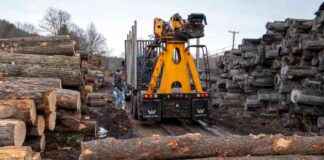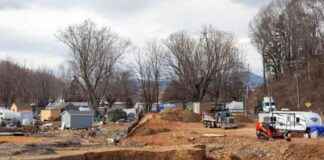The Trump administration’s long-standing distaste for the Green New Deal has been evident since the beginning of his second term. This sentiment was made clear when President Trump issued an executive order to terminate the so-called “Green New Deal,” labeling it as “ridiculous” and “incredibly wasteful.” Despite the absence of an official Green New Deal law in the United States, the administration halted funding for the 2022 Inflation Reduction Act, a significant investment in clean energy initiated by former President Joe Biden.
The Inflation Reduction Act, often hailed as a victory for climate activists, failed to fully align with their vision of a transition to renewable energy that generates quality, well-paying jobs. In light of setbacks like these, environmental activists have begun to question the effectiveness of their advocacy efforts, raising concerns about potential divisions among voters. The aftermath of Trump’s popular vote victory has prompted climate advocates to seek alternative approaches to communicate their desired changes in a manner that resonates with a broader political audience.
The Genesis of the Green New Deal
The idea of the Green New Deal gained widespread attention in the aftermath of the 2018 midterms when members of the Sunrise Movement, a group of over 200 young individuals, staged a sit-in outside Senator Nancy Pelosi’s office in Capitol Hill. This action, joined by then-representative Alexandria Ocasio-Cortez, aimed to urge Pelosi to take decisive action on climate change, presenting a draft resolution known as the “Green New Deal.” Drawing inspiration from President Franklin D. Roosevelt’s New Deal era, the resolution proposed ambitious initiatives to address climate change akin to the economic relief efforts during the Great Depression.
In February 2019, Ocasio-Cortez and Senator Ed Markey introduced resolutions for the Green New Deal in both the House and Senate. Despite facing initial skepticism and subsequent failed votes, the resolutions sparked momentum for climate advocacy, eventually leading to the passage of the Inflation Reduction Act. While the IRA has been viewed as a partial realization of the Green New Deal’s objectives, notable discrepancies exist between the two initiatives. The Green New Deal resolutions aimed for a complete economic overhaul, transitioning to renewable energy and net-zero emissions within a decade, a far more ambitious target than the IRA’s emission reduction goals by 2030.
Navigating Challenges and Shifting Priorities
The divergence between the Green New Deal and the IRA underscores the ongoing debate within the climate movement regarding the most effective strategies for addressing climate change. While both initiatives emphasize job creation and a transition to clean energy, the Green New Deal advocates for a more comprehensive transformation of the economy. Despite the positive momentum generated by the Green New Deal, challenges persist in garnering widespread public support due to concerns surrounding its cost and perceived impact on voters.
As the climate movement grapples with evolving priorities and messaging strategies, activists are exploring innovative approaches to broaden their appeal and reinforce the urgency of climate action. Initiatives like the proposed “Green Reconstruction” seek to connect climate issues with broader social and economic injustices, drawing inspiration from historical movements for transformative change. While facing resistance and misconceptions from opponents like Trump, climate advocates remain committed to advancing policies that prioritize sustainability, equity, and economic prosperity for all.
As the narrative of climate action continues to unfold, the Green New Deal remains a powerful symbol of resilience and determination in the face of environmental challenges. The movement’s ability to adapt and resonate with diverse audiences will play a crucial role in shaping future policy decisions and fostering a sustainable, equitable future for generations to come.














